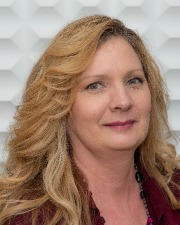The New Language of the Office - by Jane Marie DeSimone

It used to be as simple as getting into your car and commuting to work five days a week. COVID changed all of that. Many employees are engaged in some combination of work-from-home and in-office work, or all of one and none of the other. A new vocabulary has been introduced into our discussion of office space. We all know what a traditional office space is about, but here are the distinctions inherent in the new language.
Hot Desking
Under this format, companies can rent a desk for a day or two. They can rent meeting rooms as needed and, generally, all amenities are provided and fully stocked. Kitchens and bathrooms are filled with supplies while technology hookups, including outlets and monitors, are provided. Laptops must be brought but workstations are plug-in ready. Different companies share rental space and create a global network of professionals, easily collaborating and innovating with one another. On the downside, this environment is not secure since multiple companies have shared access. Depending on who is renting at a particular time, collaboration opportunities and structure may not be consistent.
Hybrid Work Environment
In this context, different teams from the same company or firm alternate their time in the office. The teams not in the office will work remotely from home. The benefit to companies is that it reduces their need for rentable space while keeping their employee count the same. On the other hand, it does not provide for a consistent structure or collaboration among members.
Hoteling
This is a model in which teams schedule desks, meeting rooms, and other resources, usually on a monthly basis, for several days each week. It is a perfect set up for sole proprietors as they can rent space only when necessary. It promotes consistency and innovation. Only outlets and wi-fi are generally provided, though, and there are no stocked amenities.
We-Spaces
Under this scenario, a small company rents space that enables a group of employees to have open discussions. The design should include a retreat-like feel, including comfort, ease of access, and technology capabilities. Seating is generally flexible. These are typically monthly rentals. Usually, there are no private or quiet areas available.
Jane Marie DeSimone is a senior project architect at H2M architects + engineers, Melville, NY.
AmTrustRE completes $211m acquisition of 260 Madison Ave.


Strategic pause - by Shallini Mehra and Chirag Doshi

AI comes to public relations, but be cautious, experts say - by Harry Zlokower

Lasting effects of eminent domain on commercial development - by Sebastian Jablonski









.jpg)

.gif)